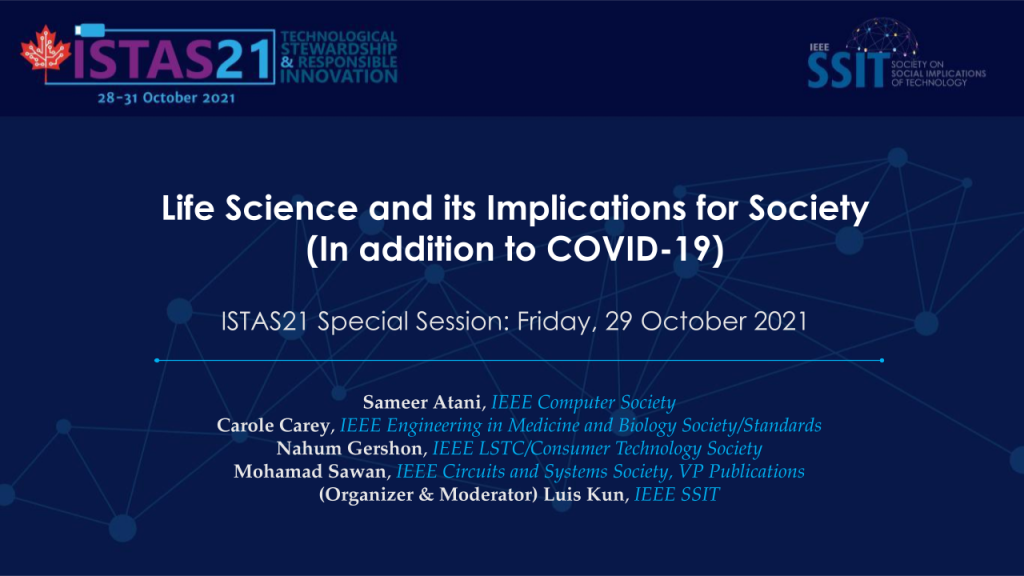
The Special Session “Life Science and its Implications for Society” took place during IEEE International Symposium on Technology and Society (ISTAS) 2021 on 29 October 2021.
This panel of experts in medicine considers the implications of innovations like Artificial Intelligence, automation, and the Internet of Things, focusing on addressing global health challenges, particularly for the post-COVID-19 pandemic era.
Click here to watch the recording of this special session.
Presenters:
Luis Kun, IEEE Society of Social Implications of Technology, Chair/Moderator
Sameer Antani, IEEE Computer Society
Carole Carey, IEEE Engineering in Medicine and Biology Society/Standards
Nahum Gershon, IEEE LSTC/Consumer Technology Society
Mohamad Sawan, IEEE Circuits and Systems Society, VP Publications
Moderator Luis Kun opened the discussion with a look at current infrastructure interdependencies, running the gamut of banking, government, wastewater, emergency response, oil, electricity, transportation and telecom. He then delved into the challenges faced by the health sector and defined relationships between global risks and infrastructure challenges. The next speaker, Sameer Antani, invited the group to look at intelligent clinical image processing as it relates to diagnostic decision making. He emphasized that ML/AI serves as an augmentation of human decision making and not as a direct replacement. Carole C. Carey then shifted the discussion to the IEEE standards on and projects to support telemedicine. She defined telemedicine to be a subset of telehealth, referring to remote clinical services. After a discussion of telehealth applications, Nahum Gershon opened with a discussion of accuracy in fitness and health monitoring devices like the Fitbit and the Apple Watch. He spoke of an experiment he conducted on himself, in which he wore these devices in various configurations on the body and observed differences in their accuracy, finding that there was a margin for error depending on how and where they were attached to the body. The final speaker, Mohamad Sawan, addressed COVID-19 detection techniques that involve smart devices and biosensors to receive faster and more accurate test results. Sawan’s team offers hope by achieving new detection techniques and experimental validation currently in the clinical phase of collecting samples and beginning the detection process on-site using the virus’ signature.






 JOIN SSIT
JOIN SSIT